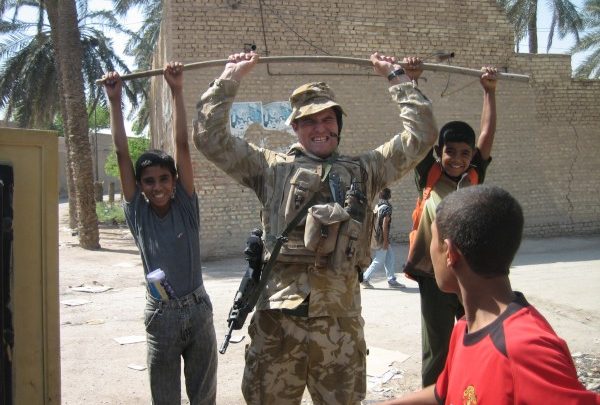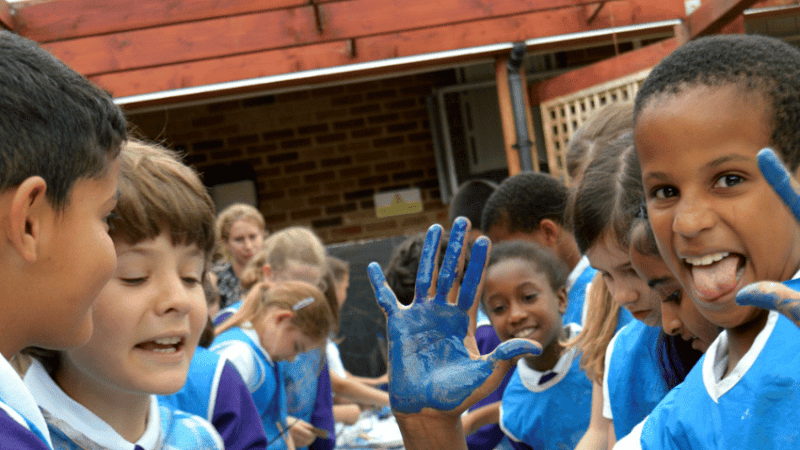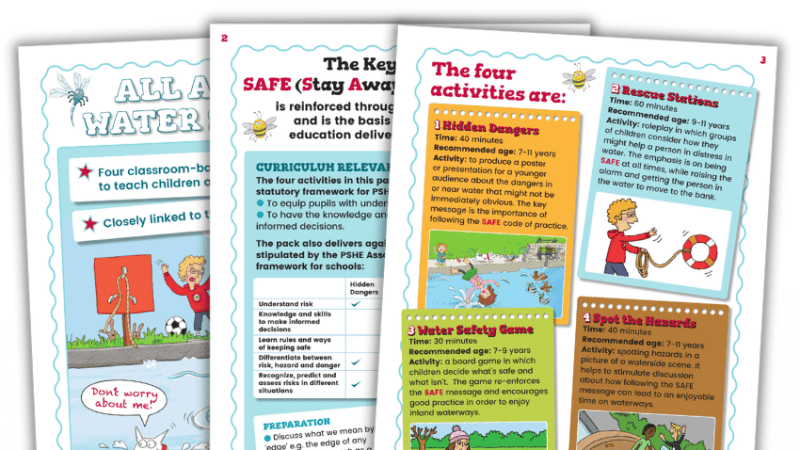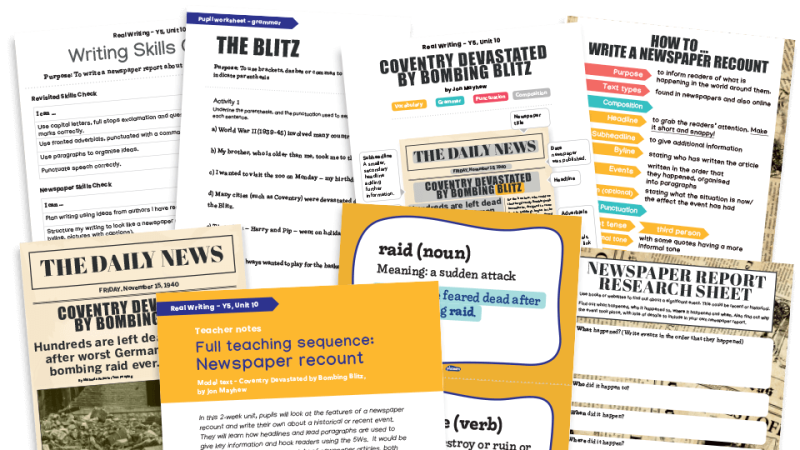“Let’s Not Be Hypocrites” – A Former Soldier’s View On Radicalisation And The Prevent Strategy

Owning up to our mistakes and encouraging open, honest debate could do more to tackle radicalisation than any number of specialist INSET days, says Iraq veteran Ralph Straw…
- by Ralph Straw

On a recent trip to the Imperial War Museum, my son pointed to an item of equipment in the Afghanistan section and said ‘That’s your helmet, Daddy!’ It wasn’t actually mine, I should point out, but it was the same model as I have at home from my time in the army.
As we walked around the museum, I noticed a group of KS4 students with their teachers. I was trying to find the Iraq War exhibition, but it turned out that the only showpiece was a large drawer containing a stamp collection depicting the faces of the servicemen and women who had died there. An American couple walked past indifferently – and, to my sadness, so did the school trip party.
Most teachers of history will compare the different wars throughout civilisation, pointing out the similarities and differences, lessons learned and advances in technology. With the continuing violence in Iraq and Syria, and the media-fuelled fear of radicalisation of young, British Muslims in our schools and communities, perhaps it’s time that schools take the lead on opening an honest dialogue about the war in Iraq.
Hard truths Just as Vietnam was a dirty word which was skimmed over in American schools, so too it seems is Iraq here. But if we are actually to break the cycle of society not learning from history, then where better for this to happen than in the classroom? A place where opinions, anger, frustration and reasoned argument can hopefully provide more of a defence against radicalisation than online training and terrorist checklists?
I think Iraq was a stupid and pointless war, and that we shed our blood and our youth on furthering the ambitions of a sociopathic and megalomaniacal prime minister. We tried our best to do the right thing, but for the wrong reasons. That is my opinion; I am allowed to express it because I was there. But it is nothing more than an opinion – emotional, bitter, and whilst possibly accurate, heavily biased.
I also think that the Vietnam war was stupid and pointless, and I wasn’t there – but I was taught about it at school. I was shown the facts and came to this conclusion through the guidance of a rigorous and unbiased secondary teacher who understood the real purpose of his subject. It was only when I experienced my own war that I was able to see the similarities and differences for myself.
There are many people in this country who are angry about what we did in Iraq. People become radicalised. And as is the case with drug use, domestic abuse, tax evasion, corporate fraud, debt or organised crime, if we drive it underground and refuse to be anything but honest about it, all we can do is sit back and watch it multiply.
As well as intelligence gathering and solid police work, of course, I feel to tackle radicalisation we must be honest and ask ourselves – has our foreign policy been anything but exemplary? How would we feel if Iraq invaded Britain, exploited our natural resources, undermined our democracy and then blamed it on us?
A moral obligation
There is, of course, a moral obligation to protect young people in schools from being brainwashed and exploited; it is the right thing to do. But is what we are doing at the moment that effective? Have we really identified a long term, sustainable solution?
Some good did come from the Iraq War. I saw humbling acts of kindness and humanity from soldiers and the Iraqi people, in the most surrealistic and nightmarish of conditions. I can recall my history teacher, Miss Bailey telling me about the Christmas Day football match during WWI. All conflicts have differences – but sadly, also many, many similarities.
I’m convinced that it’s time that the wars in Iraq and Afghanistan were added to the curriculum at KS3, when all students can join the discussion. I was taught about the Northern Ireland conflict as a young man, and less than two years after leaving school, I found myself there, patrolling the Bogside where the Bloody Sunday shootings happened. Being allowed to formulate my own views and opinions under the guidance of a good teacher and peer group didn’t make my involvement there any more harmful to the peace process. I knew what I was going into.
If we can’t prevent young people from joining IS and committing hideous atrocities, then at the very least, they can be provided with the chance to formulate their views based on reasoned historical, political, statistical and psychological evidence. We can try our best – what else can we do? Perhaps then those we teach might, in the midst of a brutal war, display those same random acts of kindness and humanity that I witnessed during my years in the Armed Forces.
Positive values
Let’s not make the same mistakes that America made over Vietnam. Let’s not be hypocrites. We should dare to look critically at ourselves, as well as others, and support our humanities teachers in encouraging young people to form their own ideas about the world they’ve inherited, through evidence, logic, intuition, and rigour. Hopefully then they will be in a much better position to decide for themselves where they fit into it – and less vulnerable to being exploited and radicalised by the less intelligence and more ignorant.
There was a Y11 Afghan student I worked with in London, who said that he wanted to complete his education and return to Afghanistan ‘To be a good leader for my people.’ We may not all agree on what precisely, constitutes ‘British values’ – but helping people who need it is surely fundamental amongst them.
Perhaps the best way to prevent radicalisation is to instil idealisation? Maybe then, more young British people might indeed travel to Iraq and Syria – but as teachers, human rights lawyers, doctors, nurses, engineers, entrepreneurs, thinkers, writers, artists, labourers, bakers, butchers – and as mothers and fathers. And going there to promote the wellbeing of their fellow men and women; not the self-serving ideology of a few fanatics that represent a tiny sliver of the population and waste the talents and lives of some of our best young minds.











